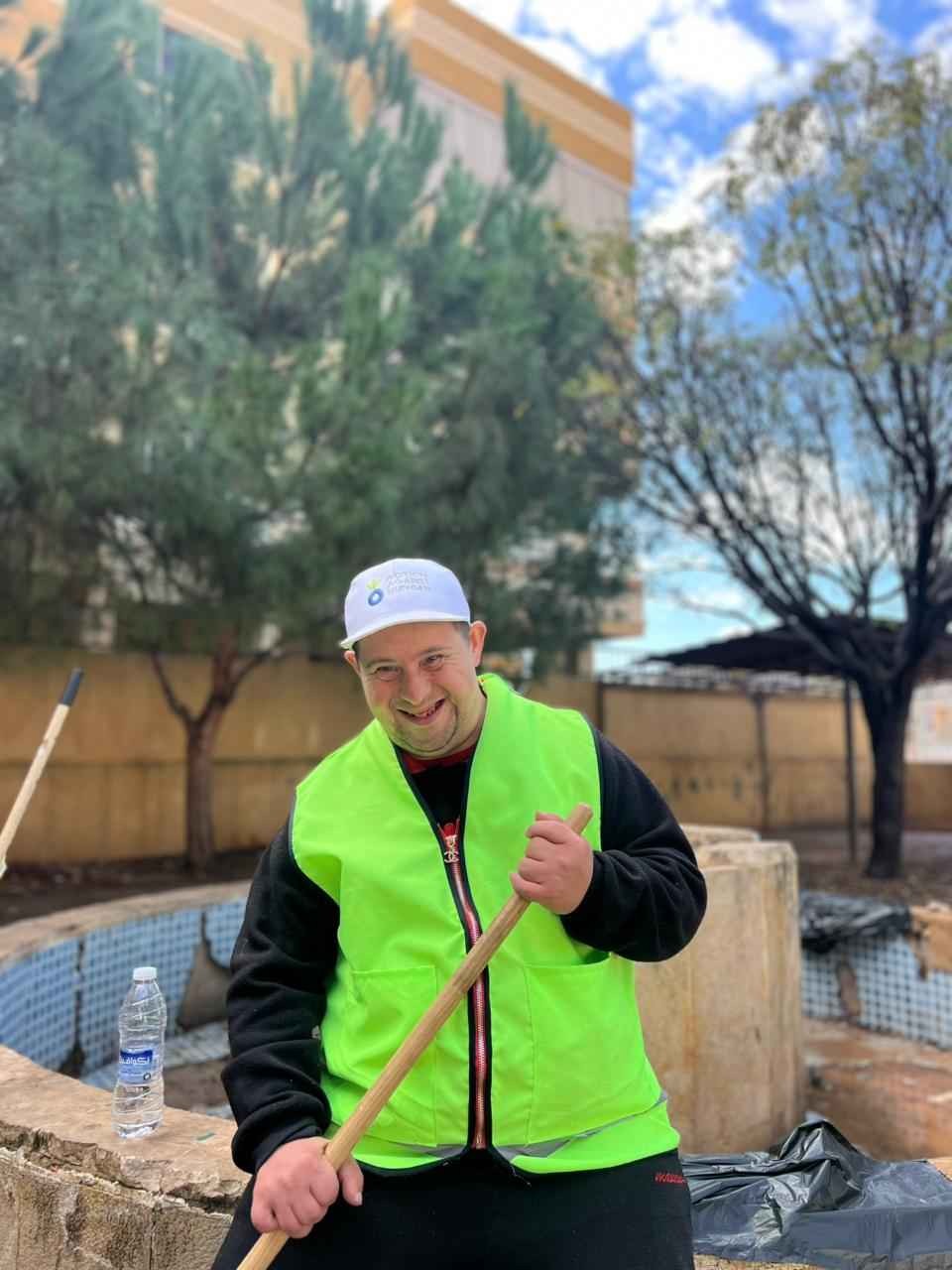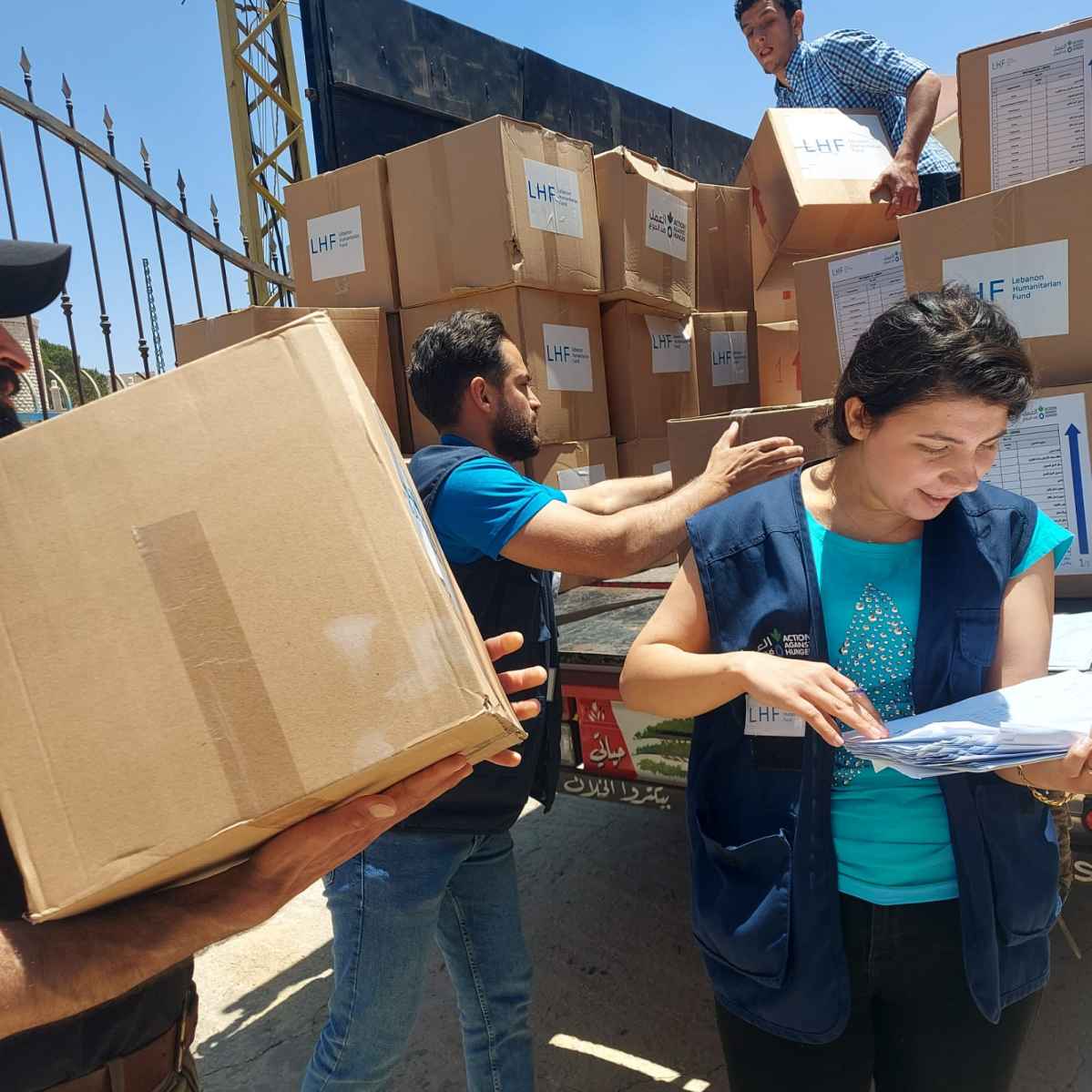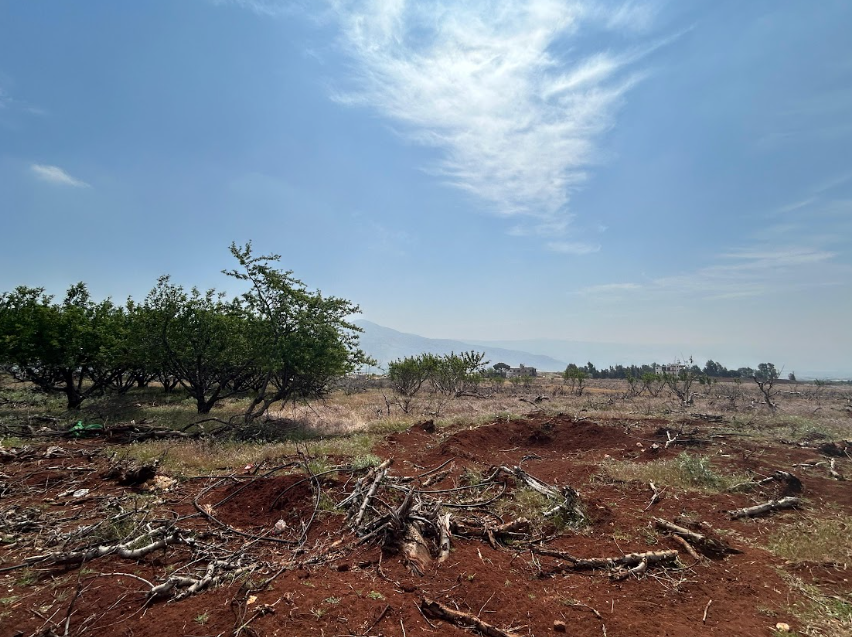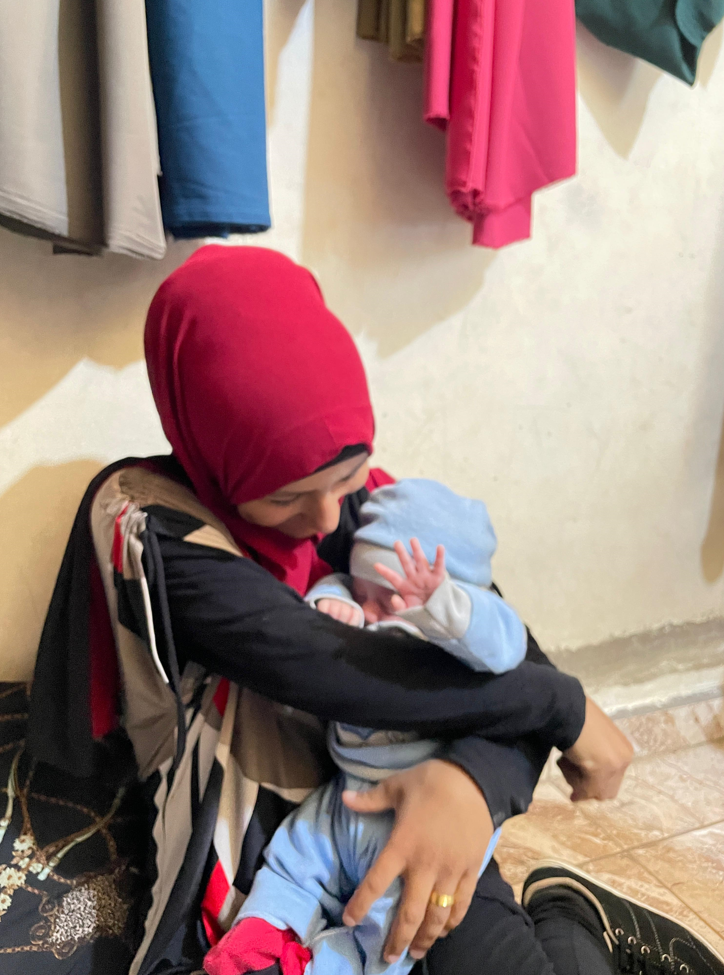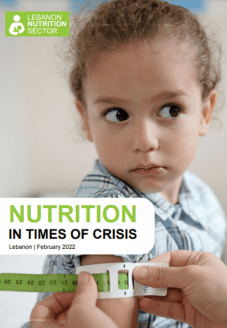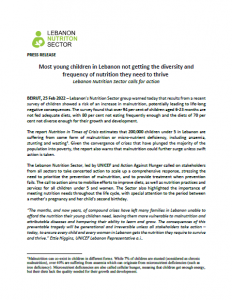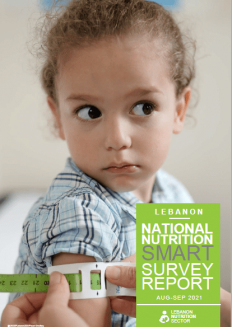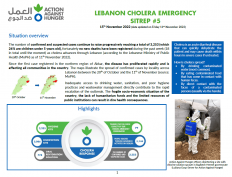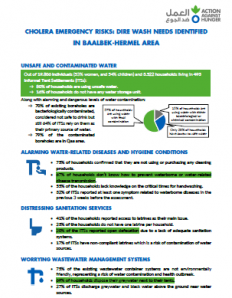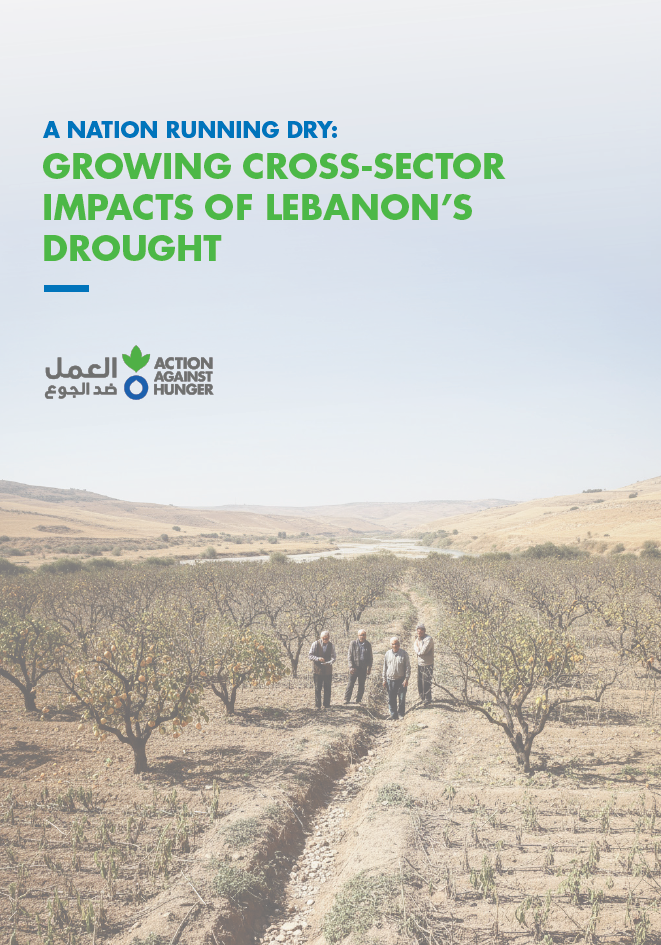
Humanitarian context
The economic crisis, the protracted Syrian refugee crisis, a cholera outbreak, the political stalemate and, more recently, the spread of the conflict in Gaza into Lebanon, have led to an increase in humanitarian needs in the country. Despite its size, Lebanon hosts the largest number of refugees relative to its population in the world, and faces significant challenges in providing assistance to the 1.5 million Syrian and 257,000 Palestinian refugees it hosts, in addition to the Lebanese population itself.
More than half of Lebanese households and 90% of Syrian households in the country live in poverty. Public services are collapsing due to lack of investment, exacerbating poor water and sanitation conditions. These crises have led to a worsening nutritional situation, with rates of chronic malnutrition among Syrian refugees in informal settlements doubling in the last decade, and more than 60% of children from refugee populations suffering emaciation.
Our activity
In response to these challenges, Action Against Hunger focuses primarily on providing assistance in health, nutrition, water, sanitation and food security. By 2023 we will reach more than 190,000 people. Of these, more than 175,000 were supported with water, sanitation and hygiene initiatives, including hygiene kits and awareness programmes, and infrastructure restoration to cope with water and sanitation emergencies. Feedback on our project to distribute water filters to Syrian refugees in Qaa-Hermel, a hard-to-reach area with a high degree of water contamination, indicated a significant improvement in water quality following the use of the filters. In addition, 76% of people reported spending less on drinking water (highlighting the financial impact of the intervention) and feeling safer when accessing water sources.
Our health and nutrition support reached more than 7,000 people, including infant and child feeding counselling, distribution of micronutrient powders and screening for child malnutrition. Food security and livelihood support reached more than 8,000 people, with cash-for-work and cash food assistance initiatives enabling these families to significantly improve consumption levels of nutritious food.
WHERE WE HELP
We help 24.5 million people each year. We work in 55 countries in Africa, Asia, Latin America and Europe, those most threatened by hunger.
EYEWITNESSES
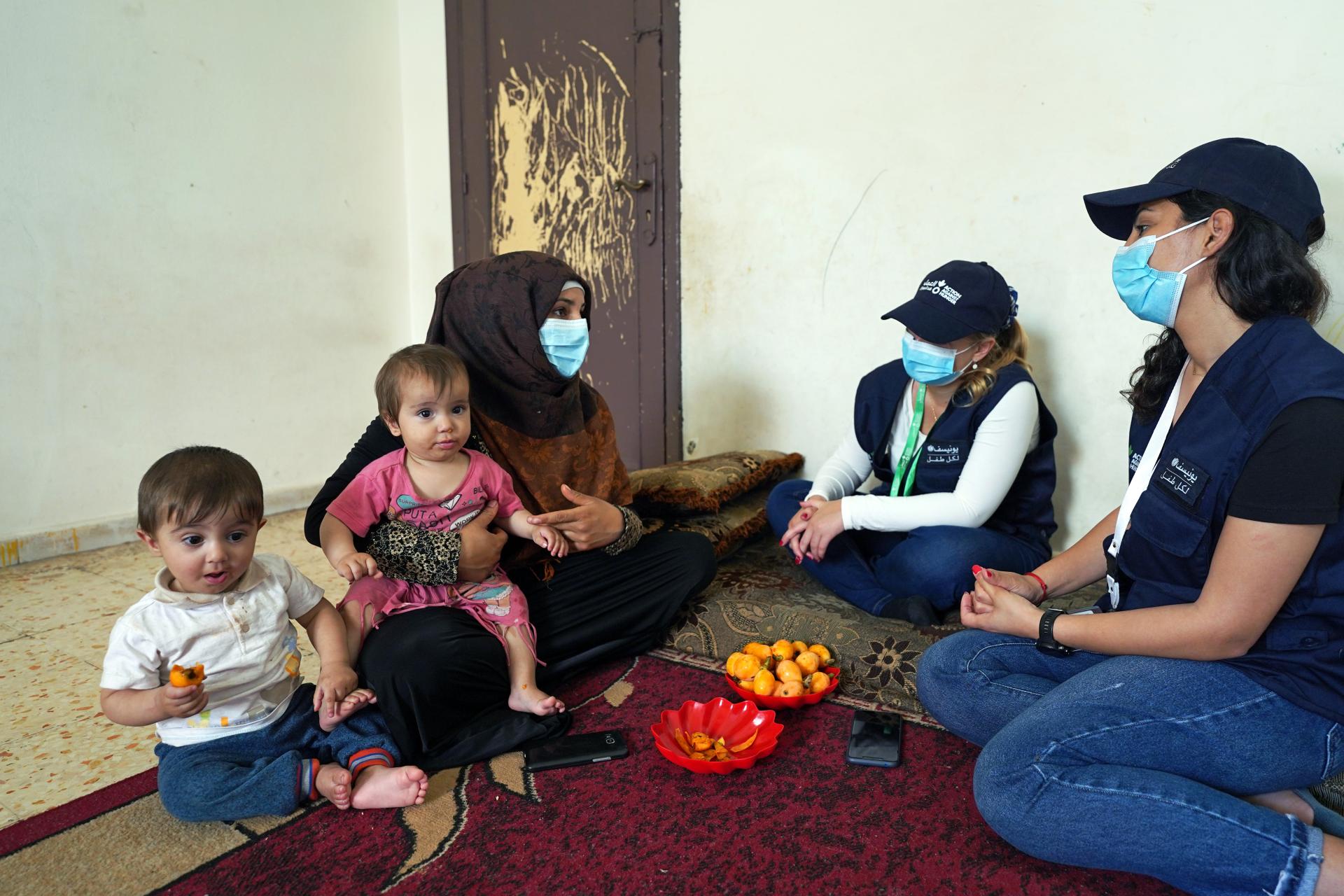
DANA LIVES IN A COLLECTIVE SHELTER IN LEBANON WITH AROUND 50 FAMILIES OF DIFFERENT NATIONALITIES
Such as Lebanese, Syrians and Palestinians, where Action Against Hunger teams implemented a nutritional support project specifically targeting the many children and women living there.
After more than a decade as a refugee in Lebanon, this Syrian mother of four received support from Action Against Hunger when she had trouble breastfeeding her twins: "I didn't have a problem with it before because it was only one baby at a time. But when I gave birth to my twins, I tried to breastfeed Akram and Nagham and I thought my milk would not be enough to feed them both. So I tried formula milk, but Nagham didn't accept it, so I gave it only to his brother.
A nutrition technician from Action Against Hunger made a home visit to assess the nutritional status of Dana's 4-year-old daughter, Nour, and provided her with nutritional powders. Our teams also conducted awareness-raising sessions on breastfeeding and associated techniques. Dana learned that she can breastfeed both children and was encouraged to do so based on the ongoing instructions and advice of our field staff: "I was seriously losing hope, but these follow-ups made all the difference."
"I gained more confidence. I started breastfeeding my twins and was so happy to see the improvement... I also started gradually to reduce the amount of formula milk... I was afraid that my newborns would go hungry but I learned that my milk is enough, and good for my children's immunity... I just want my babies to be healthy!"
